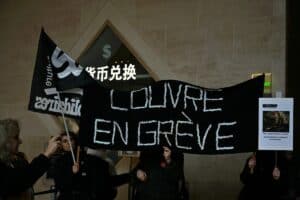Several branch offices across the country and call centres assisting tax practitioners and small and medium-sized businesses are closed.

Industrial action by workers affiliated with the National Education, Health and Allied Workers’ Union (Nehawu) and the Public Servants Association (PSA) continues at the South African Revenue Service (Sars).
Several branch offices across the country and call centres assisting tax practitioners and small and medium-sized businesses are closed. It is also not possible to make electronic bookings.
However, operational disruptions have been minimal and by noon on Thursday this week, all border posts were running smoothly except for Qacha’s Nek on the Free State/Lesotho border, where police were called to assist.
Workers are demanding an across-the-board increase of 12% (CPI plus 7%). (In 2019 a wage increase of 8% for that year and a CPI plus 2% increase for 2020-21 were agreed to.)
Sars is now offering 1.3% after starting with a zero percent increase.
Sars Commissioner Edward Kieswetter said in a statement this week that the doors of negotiation remain open.
“I understand and empathise with the financial challenges faced by our own employees at Sars, as well as all employees countrywide. In fact, all South Africans, especially millions who are unemployed, suffer the impact of the current economic climate,” he said.
“In a country that is faced with high unemployment and other socioeconomic challenges, Sars employees already have security of tenure, as well as market-related salaries and benefits,” said Kieswetter.
ALSO READ: Sars employees reject wage offer, strike to go ahead
“This offer, whilst not addressing the demands of employees, will provide additional relief to minimise the impact of the current economic conditions.”
Nehawu spokesperson Lwazi Nkolonzi said the offer was an insult to the workers. He added that there was no indication when negotiations would continue.
“The workers remain steadfast in their demands and will not return to work until their demands are met,” he said. Nehawu represents more than 5,000 employees of the Sars workforce of approximately 12,500.
Kieswetter said the revenue service recognises the right of workers to strike, but added that it will take the necessary steps to balance the impact of the strike with its responsibility to provide services to taxpayers and to collect tax. Sars is applying the “no-work, no-pay principle”.
The South African Institute of Taxation (Sait) and the South African Institute of Professional Accountants (Saipa) reported that their members did not experience any serious service issues.
Support Local Journalism
Add The Citizen as a Preferred Source on Google and follow us on Google News to see more of our trusted reporting in Google News and Top Stories.








